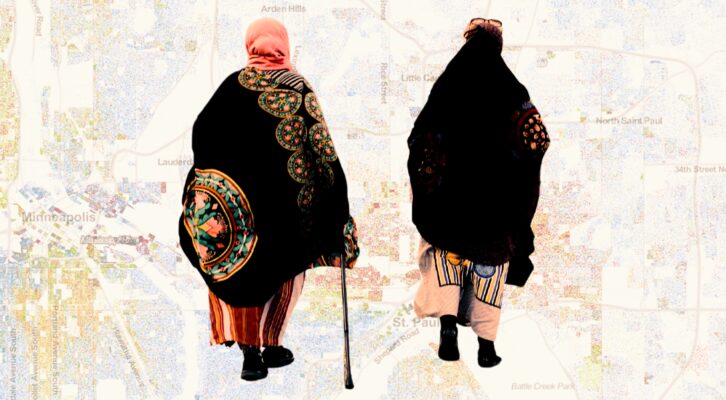Over the past few years, I spent a lot of time reading about social climbers. It was kind of an accident. I wasn’t always deliberate in seeking them out, but when you start to pay attention, these stories are hard to un-see: there are social climbers everywhere in American fiction. Liars, opportunists, profiteers, murderers: some are more lovable than others, but across era and genre, what unites these people is the fundamental act of deception.
I started to think about why these fictional characters—but people in general, too—succeed or fail in the quest for social advancement. For all of them, deception is an essential part of the equation. Balzac knew it: behind every great fortune there is a great crime. But, actually, that’s a little too pat. Fortunes and social success don’t arise from just one great crime, one great con or deception. They arise from a series of deceptions, committed continuously and unceasingly.
Tom Ripley, sent to Europe to retrieve Dickie Greenleaf. Jay Gatsby, the enigmatic self-made man. Lily Bart, the beautiful woman determined to marry well in The House of Mirth. Lambert Strether, the middle-aged man whose life could be transformed by a wealthy fiancee in The Ambassadors. Undine Spragg, the woman whose life is indeed transformed, several times, by successive suitors in The Custom of the Country. For today, that’s what I’ll restrict myself to. If you’ve read these books (and if you haven’t, you must, because they are glorious; even a difficult slow-burner like The Ambassadors), then you know that these characters share common DNA, but you also know that they don’t all end up in the same place. Some succeed; some fail. If the social climber is a well-worn pattern in American fiction, it’s a pattern that can resolve itself in different ways. I found this so interesting. As I read about these men and women, I thought: who manages to actually pull off the long con? And how do they do it?
In the windows of the Equinox gym in my neighborhood, posters scream at passersby: COMMIT TO SOMETHING. Real, true, lifelong commitment—that’s a tall order. It’s easier said than done. It’s why gym memberships grow dusty and resolutions go unfilled. And maybe it’s why not every climber manages to stay on the ladder.
***
(WARNING: Spoilers ahead for all of these books!)
Of the five social climbers mentioned above, I’m sorting them into two overly broad categories: the winners and the losers. Tom Ripley and Undine Spragg, for my money, are the winners. Jay Gatsby, Lily Bart, and Lambert Strether are the losers.
Let’s start with the losers. Gatsby and Lily die tragic deaths, and Strether is poised for lonely penury in America. It didn’t have to be this way! Each of them had their chance to make a different decision. Lily could have sucked it up and married one of her suitors, up to and including Simon Rosedale. Gatsby could have let go of his obsession with Daisy, who (let’s be real) had her flaws. Strether could have wrangled Chad Newsome back to America and married his rich mother. When the stories begin, these characters are extremely concerned with fitting in to a new world, a world more elegant and exciting than the one they knew before. Gatsby, Lily, and Strether are ambitious and driven as they scale the social ladder. And they were really getting somewhere—until they weren’t! At my most judgmental, I looked at this trio and thought: honestly, they could have been smarter about all of this.
I say could, like they had a choice. But each of these characters fell off the ladder for a good reason. Each of them has an Achilles heel. For Lily, it’s an idealism about love. For Strether, it’s a sadness for his own squandered youth. And for Gatsby, it’s his obsession with Daisy. All of these figures care about something outside of themselves—whether a person or an idea—that winds up restricting their movements. They begin their journeys with a certain goal in mind, but they can’t completely commit to that goal. Sentiment gets in the way.
He is a free man; she is a rich woman. No tragic deaths and existential despair for them.And now let’s turn to the winners. At the end of The Talented Mr. Ripley, Tom Ripley has gotten away with murder twice, and skips off to Crete, where he might very well murder again. At the end of The Custom of the Country, Undine Spragg is on her third and highly prosperous marriage. How do they manage to do it? It’s simple, really: there is nothing to restrict their movement. No person nor ideal will hold them back from what they want to accomplish. They are completely, brutally clear-eyed about this. He is a free man; she is a rich woman. No tragic deaths and existential despair for them.
What unites Ripley and Undine is their shamelessness. In their cold determination, they are both willing to do whatever it takes to keep climbing. Ripley will kill anyone who gets in his way, and Undine will happily trade in a husband for a superior model. Of course, there’s a difference between murder and divorce. This is why Ripley is a crime novel, and Custom is a social novel. But I would argue that it’s really a difference in degree, not in kind. They are essentially telling the same story.
***
What to make of this? I’m torn. Part of me admires the idealistic virtues of the losers. Another part of me admires the brutal honesty of the winners.
Gatsby, Lily, and Strether had their reasons for falling off the ladder, for failing to reach their initial goals. Admirable, justifiable reasons like idealism and love. For them, the formula could not be carried through until the very end. It demanded too much sacrifice. If the goal was to find a nice roost near the top of the social pecking order, they each learned, at a certain point, that the cost of this was goal just too great. But the three of them would probably object to my phrasing: the goal isn’t actually social ascension. The goal is true love, or freedom, or fill-in-the-blank, and the social ascension is simply the means to that end. It’s hard to feel free and empowered when the hierarchy is crushing you. So you climb up, and scramble over other bodies along the way, and once you reach the top—then you can finally start living the honest, beautiful life you were meant to live.
At the same time, this is tricky, because it requires admitting that the means are unpalatable. The means include lying, deception, bribery, adultery, and more. To be honest about it is to admit that, in order to reach a virtuous end, a lot of terrible stuff had to happen en route. But there’s a good reason for it, right? True love, freedom, fill-in-the-blank. It’s a way of jerry-rigging a moral framework around an exceedingly distasteful enterprise. Who wants to actually declare themselves a social climber? Who wants to admit to that kind of vain, ruthless ambition? Better to pledge oneself to a higher ideal.
But Ripley and Undine are having none of this. In one sense, they are the worst of the batch—they cause the most chaos, enact the most violence. They’re the sociopaths. But in another sense, they are also the most honest. They don’t pretend to do any of this for love, or some other tasteful moral reason. They are playing the game for the game itself. By the end of their novels, neither Ripley nor Undine has succeeded in finding contentment, or peace, or true love. But they have succeeded in another way: they have given themselves the power to keep writing their own stories.
In reading these books, I was struck by how claustrophobic the endings could feel. When Gatsby is found floating in his pool, or when Lily dies in the boarding house, or when Strether is cut off by the Newsomes: these moments all made me feel itchy and airless. Not to say that the scenes weren’t sublimely beautiful and powerful; they were! But F. Scott Fitzgerald, Edith Wharton, and Henry James left no question as to the fates of these characters. We know what happened to them. It has been spelled out for us. The End.
But the ending of Ripley, when he is getting ready to sail to Crete. Or the ending of Custom, when she thinks that she’d quite like to be an ambassador’s wife. These endings were like doors flung wide open, like a sweep of fresh air. Ripley and Undine just keep setting their sights higher. Not for them is the sour, resigned smell of death. And the thing is—having watched these two twist and turn through so many sticky situations, I have no doubt that they’ll keep succeeding. The open-ended quality of the story is their success.
This is why, in spite of our better judgment, we’re drawn to con men and con women. They’re getting away with it.And isn’t this sort of irresistible? This, I think, is why we keep reading these stories. This is why, in spite of our better judgment, we’re drawn to con men and con women. They’re getting away with it. We watch in awe: they’re actually getting away with it. And maybe, on some dark and inadmissible level, we wish we could get away with it, too. We read about grifters with our jaws dropped, and we feel disgust, but also a little bit of envy. Finagling a free room at a luxury hotel sounds pretty good, doesn’t it? Tricking people into believing your story is powerful, isn’t it?
The American dream may be the most essential idea in this country, but I wonder whether there is a dark side to it. We put so much emphasis on ascension. Is the social climber the necessary corollary of the American dream? And if it is, is America more like a Gatsby or Lily or Strether, or is it more like a Ripley or Undine? I’m pretty confident in betting on the former, because if Americans were really that sociopathic, the country would look different. There is a lot of goodness and kindness among ordinary citizens, which we witness every single day. But sometimes I wonder about the men and women at the very, very top. What did they do to get there? Which category do they fall into?

















